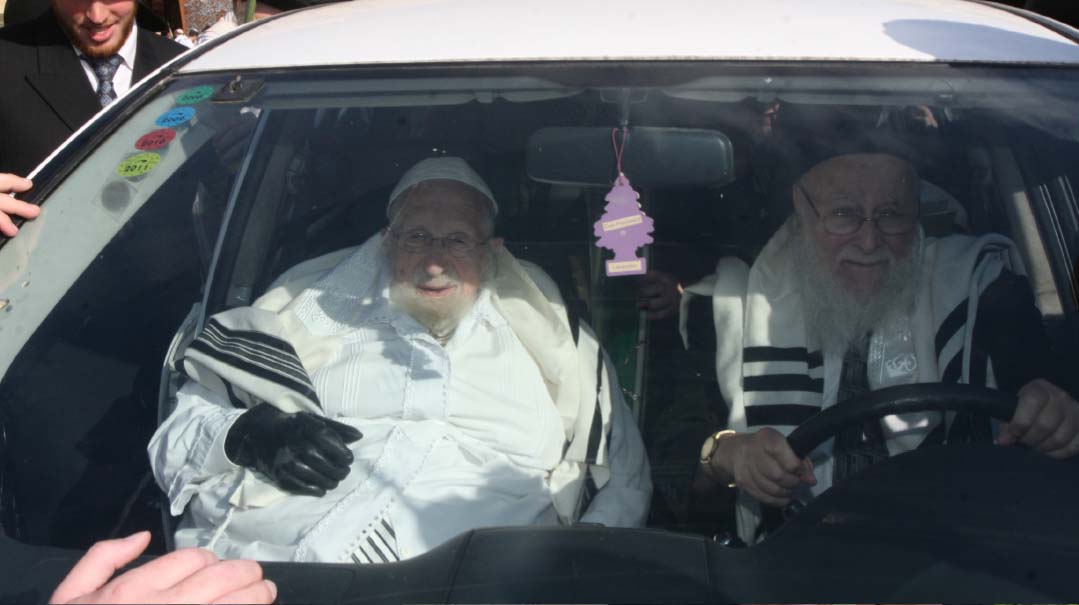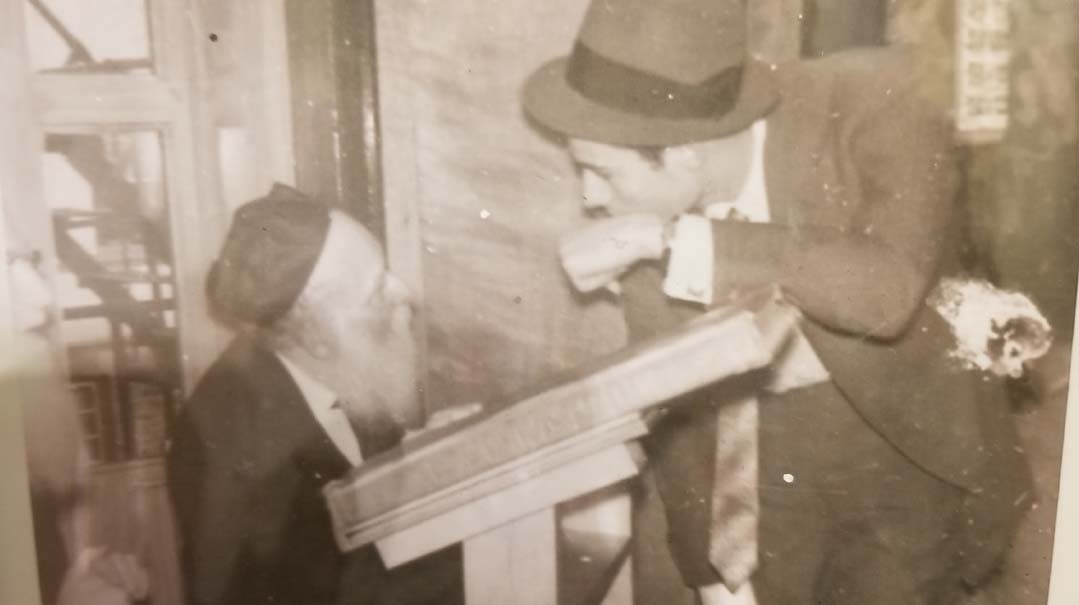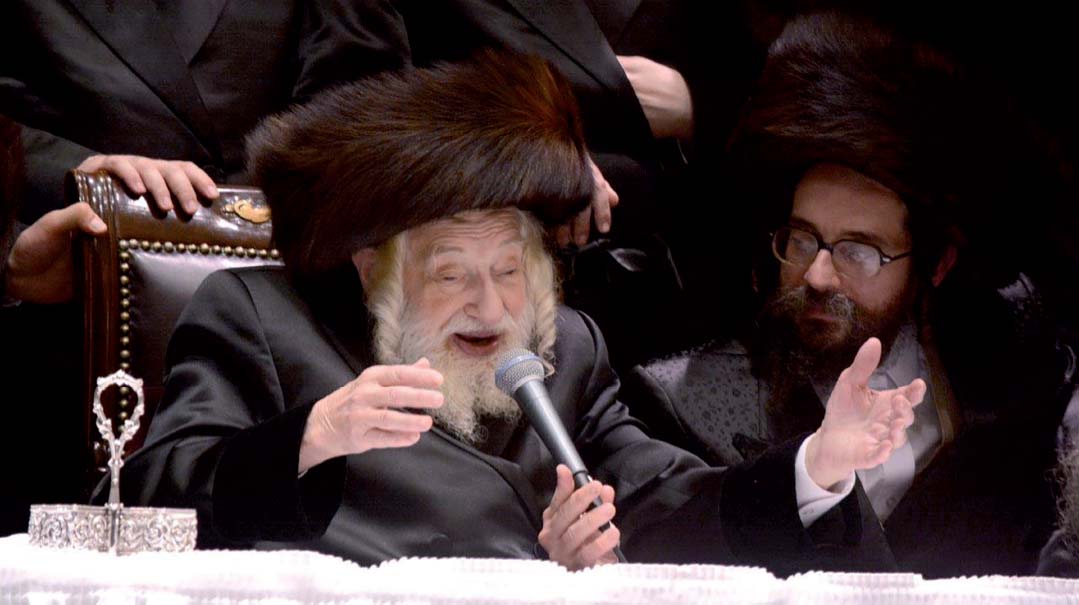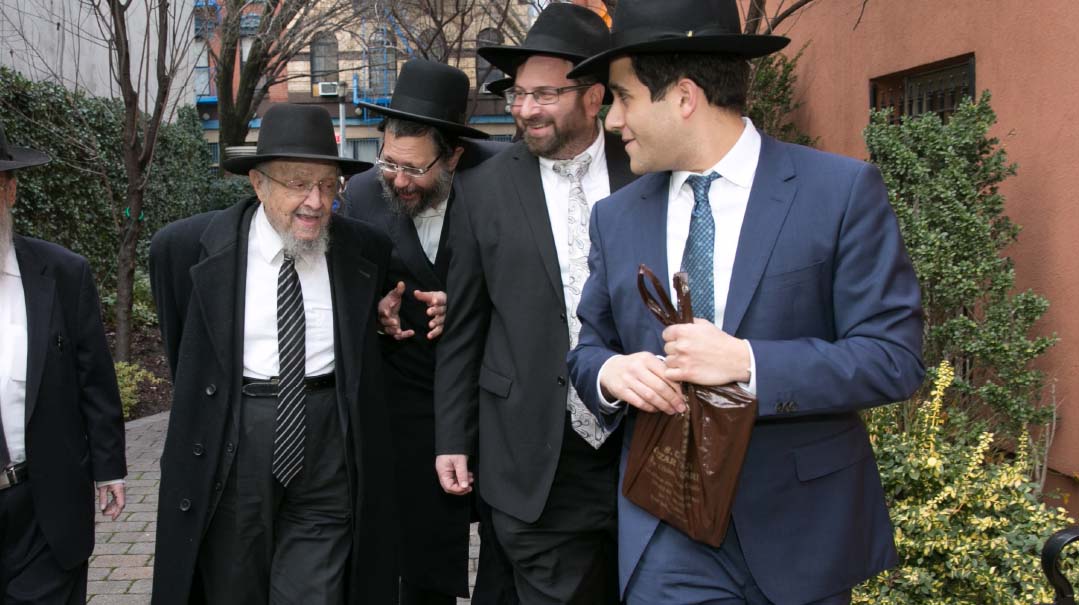Notes from the Front Row Seat
| September 14, 2021“A groisse shkoyach. mamush, a groise mitzvah hot ir gehat”
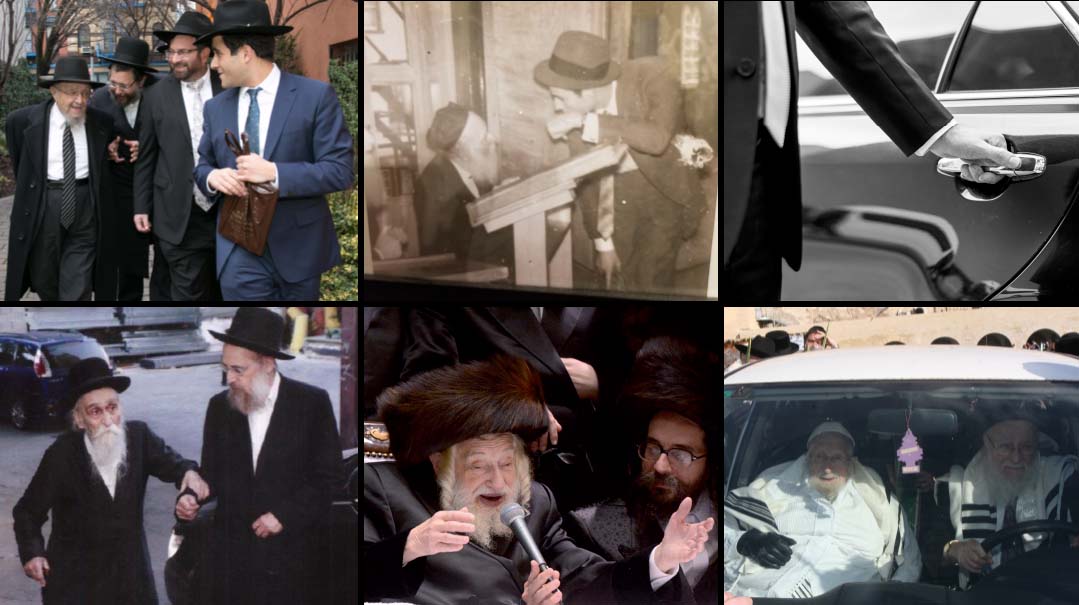
MUSICAL JOURNEYS
There’s nothing like a song to make the time pass in the car. Which melodies did these gedolim share on the way?
Rabbi Sherhoffer: Like his father and grandfather, the Skulener Rebbe composed heilige chassidishe niggunim. He always had a tape recorder on him and the moment a song came to him, he’d start humming, close his sefer, and record yet another holy niggun for posterity. It was a privilege to be there watching him during those moments of inspiration. It was eminently clear that he was a pure conduit, and these songs came directly from Shamayim.
Rabbi Dunner: At times Rav Dovid Soloveitchik would enhance our drives with Yiddishe niggunim. He sang with such hartz, such emotion. He would also relate stories of gedolei Yisroel whom he merited to see with his own eyes, like Reb Chaim Ozer and Reb Boruch Ber. He told these stories with such detail, you felt you were there. On witnessing Reb Boruch Ber say Asher Yatzar, he said, “It gave you enough yiras Shamayim for a lifetime.”
When we left a chasunah of a child of the Gerrer Rebbe, shlita, the Rebbe escorted Rav Dovid out. Rav Dovid told me that the chasunah, with its thousands of chassidim, reminded him of his childhood visits to Warsaw.
Whittow family: Rav Scheinberg delivered a shiur in Bnei Brak every two weeks. On the long drive home, he would tell the bochurim in the back to sing niggunim to keep our father awake and alert as he drove.
TOKEN OF THANKS
It’s a priceless privilege to accompany a gadol, but the gratitude goes both ways. How did these gedolim demonstrate their appreciation?
Rabbi Ginzberg: Rav Dovid Feinstein would have us stop on the way home so he could buy me dinner in a restaurant. That’s how he showed me hakaras hatov.
Rabbi Sherhoffer: The Skulener Rebbe would thank me effusively for anything I did, big or small, even if it was just a ride for one of his children.
Rabbi Dunner: Every night without fail, Rav Dovid Soloveitchik would thank me warmly. “A groisse shkoyach. mamush, a groise mitzvah hot ir gehat.”
Incidentally, when my father visited Eretz Yisrael for the first time, he came to Rav Dovid and asked him, “How’s my Yanki doing, are you tzufreiden, satisfied, with him?”
The Rosh Yeshivah looked at him and asked, “Tzufrieden?”
I couldn’t believe what I was hearing. Was he not satisfied?
“In ruchniyus, there’s no such thing as being satisfied,” Rav Dovid continued. And he lived like that — he always worried if he did the right thing.
The Whittow family: Rav Scheinberg so appreciated our father’s time. He’d stop to say Tefillas Haderech, telling our father, “It’s not for me, it’s for you.” But our father was equally grateful for the privilege. He hosted a pizza party every Motzaei Shabbos for the bochurim of yeshivah, purely to proclaim his gratitude for the zechus of being Rav Scheinberg’s driver — before dashing out suddenly at ten p.m. to pick up the Rosh Yeshivah.
Whenever he picked up the Rosh Yeshivah from the airport — after often paying for the airfare — he would first go to the mikveh, wash his car, and dress in his Shabbos clothes, saying he was about to greet pnei haShechinah.
PERKS OF THE POSITION
Serving a Torah giant brings privileges and perks. Which benefits do these devoted servants still remember?
Rabbi Ginzberg: Rav Dovid Feinstein would prepare shiurim or say Tehillim while I drove. But once it got dark, he didn’t turn on the light. Instead, it was my chance to talk to the Rosh Yeshivah about whatever was on my mind.
Dr. Biberfeld: After driving Rav Aharon to Boro Park, I would take the car home with me until our next trip. I lived in Washington Heights, with its densely populated apartment buildings. It was always impossible to find a parking spot — but I remember that every time I’d arrive with the Rosh Yeshivah’s car, a space would miraculously open up.
Rabbi Sherhoffer: My family was very close to the Rebbe, he was like our mother and father and our first port of call for anything.
Whittow family: We went to Rav Scheinberg for brachos whenever we needed anything, including every Erev Shabbos. When one of us needed a job, she went to him for a brachah and I got a job quickly, even though it was hard in those days. And all the children merited to find shidduchim easily, including one daughter who had undergone a kidney transplant. We attributed that directly to Rav Scheinberg’s brachos.
U-TURN AHEAD
Reb Shia Kroizer drives the Vizhnitzer Rebbe, Rav Yisroel Hager, shlita. Years ago, when the Rebbe’s father, the Yeshuos Moshe, was in Arad on vacation, the gabbaim aked Reb Shia to drive to Arad to escort the Rebbe back to Bnei Brak.
It was 9 a.m. and they wanted to leave Arad at 11:30 a.m., which was tight timing. Reb Shia wasted no time and left immediately, but just as he was arriving in Arad, a police officer stopped him and issued a speeding ticket. He also wanted to rescind Reb Shia’s license, but since he wasn’t authorized to do that on his own, he gave Reb Shia a summons to appear at the police station the following week for the final decision.
Before presenting himself at the station the next week, Reb Shia went to the Yeshuos Moshe for a brachah.
“If they’ll have a bit of seichel, they won’t take your license away,” said the Rebbe.
Armed with that blessing, Reb Shia entered the station. First, he told the police, “Do you know why I exceeded the speed limit? Because I had to collect the Grand Rabbi of Vizhnitz. In fact, I’m coming from him now. Before coming here, I went to get a brachah.”
“Nu,” said the officer, “what did the Rabbi say?”
“He said that if you’re in your right mind, you won’t take my license.”
“That’s what the Rabbi said? Take your license back!”
The officer proceeded to write a kvittel for Reb Shia to present to the Rebbe, to which he added the names of the other officers in that precinct, who had quickly gathered to seize the unique opportunity.
SPEECHLESS
The Tchernobyler Rebbe of Bnei Brak, shlita, leads an intense daily schedule — and sleep is not part of it. One of his gabbaim related that a benefit of traveling is that the Rebbe gets to sleep while on the road, albeit lightly. The slightest noise or bump will wake him, so the driver and gabbaim remain utterly silent the entire way to afford the Rebbe some precious sleep. While the need to maintain total silence can be stressful, the chassidim vie for the privilege, valuing the opportunity to simply be in the presence of the Rebbe.
On a recent five-hour drive from one city to another, the driver managed to cruise steadily for the full trip, sans any stops or unnecessary breaks. The mute backseat passengers behind him experienced something akin to a wordless five-hour Shemoneh Esreh as the car drove smoothly through its route, allowing the holy passenger inside a rare opportunity to strengthen his reserves.
(Originally featured in Mishpacha, Issue 878)
Oops! We could not locate your form.

